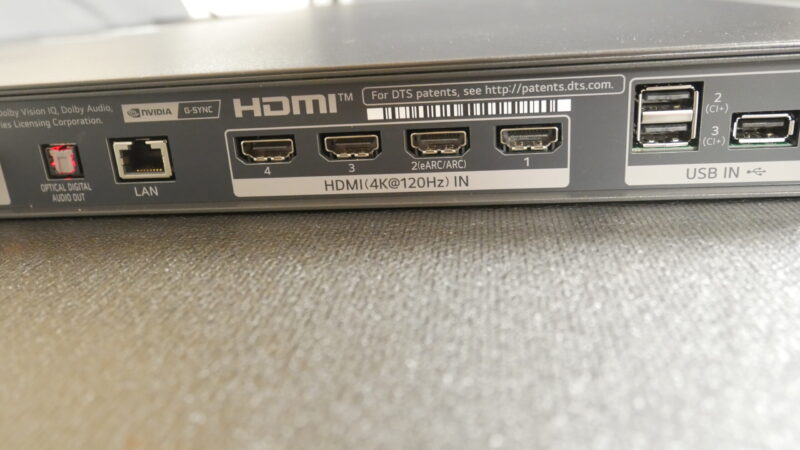Understanding The Value Of Middle Managers In Today's Workplace

Table of Contents
Bridging the Gap Between Leadership and Employees
Middle managers serve as a vital link, connecting upper management's strategic vision with the day-to-day operations of frontline employees. This crucial role ensures that organizational goals are understood, implemented, and achieved effectively.
Effective Communication and Information Flow
Effective communication is the cornerstone of any successful organization, and middle managers play a pivotal role in facilitating this. They translate complex strategic directives from senior leadership into actionable tasks for their teams, ensuring everyone is on the same page. Simultaneously, they relay feedback and updates from the frontline to upper management, providing invaluable insights into operational realities.
- Facilitates two-way communication, reducing misunderstandings: Middle managers act as a filter, clarifying ambiguities and ensuring that information is accurately conveyed in both directions.
- Provides regular updates and feedback to both upper management and employees: This consistent flow of information keeps everyone informed and engaged, fostering a sense of transparency and trust.
- Identifies and addresses communication breakdowns proactively: By being closely involved with both leadership and employees, middle managers can quickly identify and address any communication issues before they escalate into larger problems. This includes identifying language barriers, cultural differences, and technological limitations.
Mentorship and Development
Beyond communication, middle managers are instrumental in the development and growth of their teams. They act as mentors and coaches, guiding employees toward professional and personal success. This investment in employee development not only improves individual performance but also fosters a culture of continuous learning and improvement.
- Provides on-the-job training and guidance: Middle managers offer practical, hands-on training, allowing employees to learn and develop their skills in a real-world setting.
- Identifies employee strengths and weaknesses, tailoring development plans accordingly: By carefully observing and evaluating their team members, middle managers can identify areas for growth and create personalized development plans.
- Acts as a coach and mentor, fostering a positive work environment: This supportive role encourages employees to take on new challenges, enhancing job satisfaction and retention.
Driving Operational Efficiency and Productivity
Middle managers are directly responsible for the day-to-day operations of their teams. Their ability to manage resources effectively and monitor performance is critical to achieving organizational goals and maintaining a competitive edge.
Resource Allocation and Management
Efficient resource allocation is key to maximizing productivity and minimizing waste. Middle managers are responsible for ensuring their teams have the necessary resources – including budget, personnel, and equipment – to perform their tasks effectively.
- Optimizes resource utilization to maximize productivity: By strategically allocating resources, middle managers ensure that teams have what they need, when they need it.
- Identifies and resolves resource constraints effectively: They proactively identify potential resource bottlenecks and work to find creative solutions to overcome them.
- Implements cost-saving measures without compromising quality: Middle managers are adept at finding ways to improve efficiency and reduce costs without sacrificing the quality of work.
Performance Monitoring and Improvement
Middle managers continuously monitor team performance, identifying areas for improvement and implementing strategies to boost productivity. This involves setting clear expectations, providing regular feedback, and tracking key performance indicators (KPIs).
- Sets clear performance expectations and goals: This ensures that everyone understands their roles and responsibilities and is working toward the same objectives.
- Provides regular performance feedback and coaching: Constructive feedback helps employees improve their performance and reach their full potential.
- Implements performance improvement plans as needed: When performance falls short, middle managers work with employees to develop and implement plans to address the issues.
- Tracks key performance indicators (KPIs) to monitor progress: This data-driven approach allows middle managers to accurately assess team performance and identify areas needing attention.
Fostering a Positive and Productive Work Environment
A positive and supportive work environment is crucial for employee engagement and retention. Middle managers play a critical role in fostering this environment by building strong teams, promoting collaboration, and addressing employee concerns promptly.
Team Building and Motivation
Middle managers are responsible for creating a cohesive and collaborative team environment. This includes fostering open communication, resolving conflicts effectively, and celebrating team successes.
- Creates a positive and supportive work environment: A positive atmosphere encourages employees to perform at their best.
- Encourages teamwork and collaboration: Middle managers facilitate collaboration, enabling teams to work together efficiently and effectively.
- Provides regular recognition and appreciation: Acknowledging and appreciating employee contributions boosts morale and enhances job satisfaction.
- Effectively manages conflicts and disagreements: Middle managers resolve conflicts fairly and promptly, minimizing disruptions to productivity.
Employee Engagement and Retention
Engaged employees are more productive and more likely to stay with a company. Middle managers contribute significantly to employee engagement and retention by fostering a positive work environment, providing opportunities for growth, and addressing employee concerns.
- Promotes employee well-being and work-life balance: Middle managers support employee well-being initiatives, recognizing the importance of a healthy work-life balance.
- Provides opportunities for professional development: Investing in employee growth fosters loyalty and enhances skill sets within the organization.
- Actively listens to employee concerns and addresses them effectively: Addressing employee concerns promptly demonstrates that their voices are heard and valued.
- Recognizes and rewards employee contributions: Regular recognition and rewards reinforce positive behaviors and motivate employees to continue performing at a high level.
Conclusion
In conclusion, the value of middle managers in today's workplace is undeniable. They act as essential bridges between leadership and employees, driving operational efficiency, and fostering a positive work environment. Investing in the development and training of your middle managers is crucial for organizational success. By understanding and appreciating the significant contributions of your middle managers, you can unlock their full potential and build a more productive and engaged workforce. Don't underestimate the power of effective middle management; it's the backbone of a successful organization. Learn more about maximizing the impact of your middle management team today!

Featured Posts
-
 China Seeks Middle East Lpg To Offset Us Import Tariffs
Apr 24, 2025
China Seeks Middle East Lpg To Offset Us Import Tariffs
Apr 24, 2025 -
 Analyzing The Chinese Auto Market Why Bmw And Porsche Face Headwinds
Apr 24, 2025
Analyzing The Chinese Auto Market Why Bmw And Porsche Face Headwinds
Apr 24, 2025 -
 Post Roe America How Otc Birth Control Changes The Game
Apr 24, 2025
Post Roe America How Otc Birth Control Changes The Game
Apr 24, 2025 -
 Sale Of Utac Chip Tester Under Consideration By Chinese Buyout Firm
Apr 24, 2025
Sale Of Utac Chip Tester Under Consideration By Chinese Buyout Firm
Apr 24, 2025 -
 77 Inch Lg C3 Oled Tv Why Its My Favorite
Apr 24, 2025
77 Inch Lg C3 Oled Tv Why Its My Favorite
Apr 24, 2025
Latest Posts
-
 Regulatory Changes Sought By Indian Insurers For Bond Forwards
May 10, 2025
Regulatory Changes Sought By Indian Insurers For Bond Forwards
May 10, 2025 -
 Should Investors Worry About Current Stock Market Valuations Bof As Answer
May 10, 2025
Should Investors Worry About Current Stock Market Valuations Bof As Answer
May 10, 2025 -
 Indian Insurance Sector Seeks Simplification Of Bond Forward Regulations
May 10, 2025
Indian Insurance Sector Seeks Simplification Of Bond Forward Regulations
May 10, 2025 -
 Call For Regulatory Reform Indian Insurers And Bond Forwards
May 10, 2025
Call For Regulatory Reform Indian Insurers And Bond Forwards
May 10, 2025 -
 Indian Insurers Seek Regulatory Easing On Bond Forwards
May 10, 2025
Indian Insurers Seek Regulatory Easing On Bond Forwards
May 10, 2025
